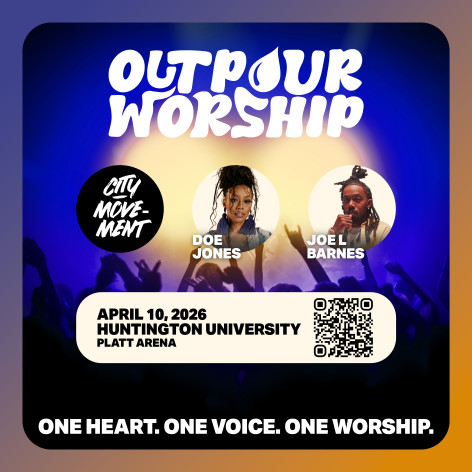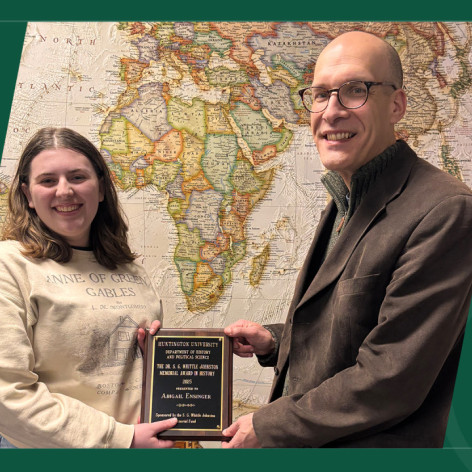Huntington students study artifacts in Greece, Turkey
FOR RELEASE: Thursday, February 12, 2009
Huntington, Ind.-Dr. Mark Fairchild walks off the tour bus as it is stationed at a small restaurant in Turkey. He approaches the tour guide, Macit, and asks him about a famous bridge that he wants to visit. Macit is not aware of the location of the bridge; however, the owner of the restaurant offers to transport Fairchild and four students to the site. Once at the bridge, Fairchild and the students decide they want to remain there for a longer period of time to study the bridge. The owner graciously leaves his car and keys with the group and takes a taxi back.
This is the Temple of Apollo at Didyma. The temple was one of the most important prophetic oracles in the ancient world.
"That is what the people are like in that country." said Fairchild, professor of Bible and religion. "They are very kind and trusting people."
Fairchild, along with the Rev. Bill Fisher, led a group of 17 students from Huntington University on a January Term trip to Greece and Turkey. The trip consisted of active exploration of the churches of St. Paul. Before leaving, the students were required to read a textbook from Oxford University and understand the history, along with the Biblical relevance, of the archeological remains. They also kept a journal that documented their travels and the Biblical and historical significance of the places they visited.
This is the theater in Assos with the Aegean Sea in the background. St. Paul visited Assos on his journeys. The Huntington University group is scattered about the theater.
Many archaeological remains that are found in Turkey are not restorable because of limited funds and few museums. Those that are recovered usually are left uprooted in the fields until more room can be made available.
"Most of the damage done to the relics is from tourists," said Fairchild. "Since Turkey is such a poor country, it isn't able to financially support the newly excavated artifacts, thus they are left in the fields uncovered until storage can be found."
The number of artifacts found increases daily, which poses a problem for Turkey. With little money to protect the findings, smaller tasks are done to secure them. Until more museums can be built, small tent-like structures are placed over top of the recovered churches to shield them from damaging conditions.
During the tours, lectures were given at each site by Fairchild, and extensive information was delivered by Macit. To many in the group, Macit was influential to them in the manner in which he demonstrated his knowledge and understanding of the culture.
"His insight and knowledge was humbling, and his willingness to share with us and to share on our journey and in our experiences made him feel like family," said Stephen Milliken, a double major in youth ministries and family and children's ministries from Franklintown, Pa. "In some ways he was like our rabbi. We walked where he walked and listened intently as he spoke. All of us who went on the trip had a great respect and love for him by the end."



